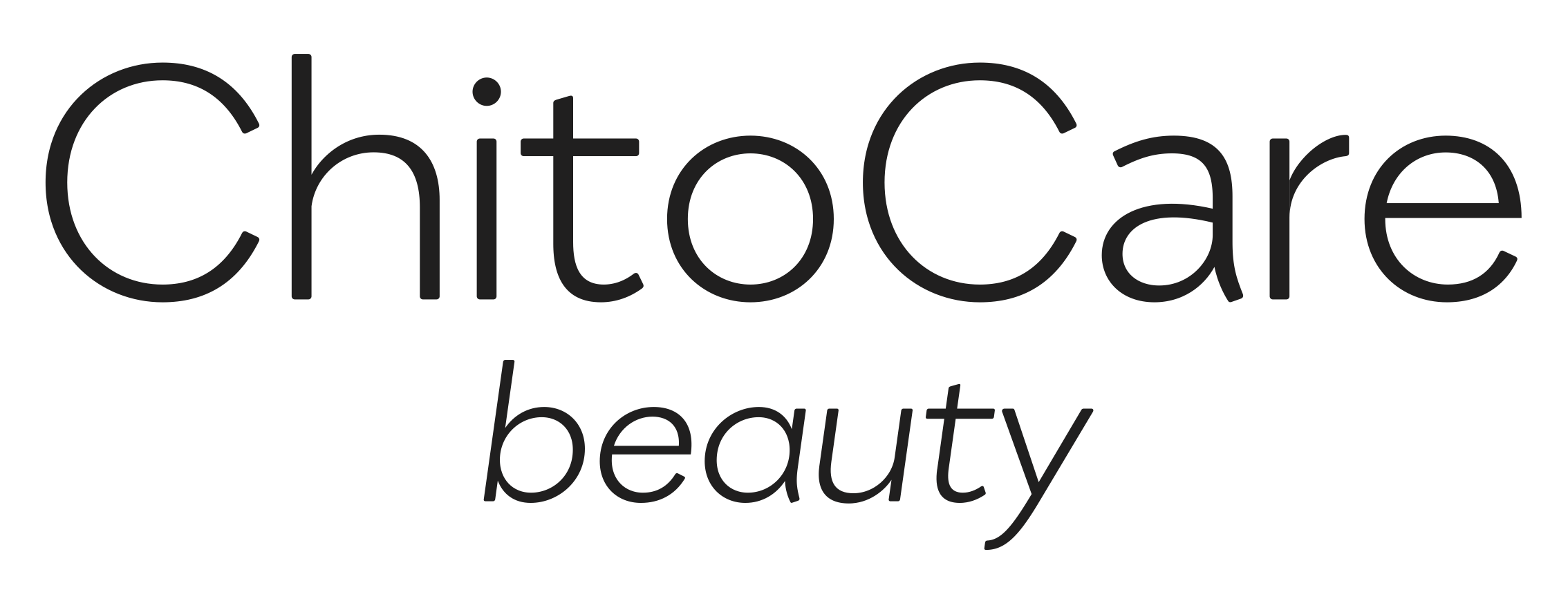
Common Skin Conditions: Psoriasis
At ChitoCare beauty, we realize that information is an important tool for making better skincare choices. As skin conditions can often be confused with skin type, we highlight four common skin conditions that can affect people of all skin types.
Just like our fingerprints, each person’s skin is unique. Genetic makeup, climate, diet, lifestyle, external aggressors and many other factors affect our skin on a daily basis. Some people have a relatively easy experience with their skin and will show minimal problems throughout their lifetime. Others, however, may encounter skin problems at nearly every stage of their life.
While a lot of the ways in which skin reacts is related to a person’s skin type, which many people share, a specific skin problem, also known as a skin condition or skin disorder, can be developed by anyone, no matter what their skin type. In short, everyone has a skin type, but not everyone has a skin condition.
Skin type versus skin condition
The difference between skin type and skin conditions is that skin type is mainly driven by one’s genes, alongside other intrinsic and extrinsic factors. Skin conditions, on the other hand, are developed and are considered a more serious skin health issue that require special treatment or professional dermatological help. Skin conditions are typically driven by one’s environment, immune system problems, other diseases, allergies or external irritants. However sometimes skin conditions can be inherited, or they can run in families.
Understanding whether any issues your skin has is due to a skin condition and not your skin type, is important for keeping your skin healthy, balanced and thriving. Misunderstanding skin conditions, or being unaware of them, could compromise your skin’s natural defense barrier and trigger further issues, such as inflammation, breakouts, irritation or sensitivity.
Some skin conditions are not curable, or they can fluctuate throughout one’s lifetime. Additionally, they can cause significant psycho-social distress, lower one’s self-esteem or be physically painful. Therefore, once diagnosed, it is important to keep an eye on them to take appropriate action. Most of the time, skin conditions can be alleviated and managed effectively, with professional assistance and the correct care.
Common skin conditions
As each person’s skin is unique, skin conditions can also vary from person to person in terms of causes, triggers, symptoms and treatment. Some skin conditions are rare, while some are common. If you think you might have a skin condition, consult with your healthcare professional or dermatologist, who can correctly diagnose you and offer treatment options. Below we outline some core facts about psoriasis.
Psoriasis
Psoriasis is a chronic skin disorder, meaning that it cannot be cured completely, only managed. It is caused by an over-reactive immune system, causing skin inflammation due to excess skin cell growth. While the typical skin cycle causes new skin cell growth every 28 to 30 days, the skin cycle in people with psoriasis causes new cells to grow and rise to the top of the skin every three to four days. As skin cells build up and replace old cells, silvery scales appear on the surface of the skin.
People with psoriasis develop thick patches, called plaques, that are often pink or red in colour and are covered with white or silvery scales. These plaques can become itchy, or they may swell or feel hot, causing discomfort.
Where psoriasis can appear
- Face, scalp or inside the mouth
- Palms, fingernails, feet and toenails
- Lower back, elbows and knees
- Genitals
A number of things can trigger psoriasis, though the reason behind flare ups differs from person to person. Some common triggers include skin injuries, stress, immune system infections such as streptococcal tonsillitis, HIV or other viral infections, certain types of prescription medication, and cold weather with dry air but little sunlight and humidity. Excessive alcohol consumption and smoking can also make symptoms worse.
Common psoriasis symptoms
- Red, scaly patches on the skin
- Itchiness or skin that is painful to touch
- Cracked, dry skin
- Scaly scalp
- Cracked or pitted nails
- Joint pains
Psoriasis is not contagious, and a number of treatments exist to help manage it and reduce symptoms. A dermatologist or healthcare professional can help accurately diagnose psoriasis and offer treatment options. Note that psoriasis is often confused with eczema, however they are two different skin conditions, as eczema appears in different parts of the body than psoriasis, usually causes considerably more itching and has a different appearance.
ChitoCare medical Wound Healing Gel helps to reduce the symptoms associated with skin conditions. It protects against infections, reduces redness, itching and pain and helps heal minor wounds, reducing bleeding and minimizing scarring. It can be used on breached or intact skin, covering the area in a thin, protective film that is breathable and biocompatible.
To strengthen brittle nails, promote hair health and improve skin moisture, add ChitoCare beauty Hair, Skin & Nails to your diet. Containing a blend of natural ingredients, including Icelandic silica, mineral-rich algae, vitamin C and antioxidants, it contributes to normal collagen formation and skin rejuvenation.
___
* If you think you might have a skin condition, consult with your dermatologist. They can accurately diagnose you and offer treatment solutions.


